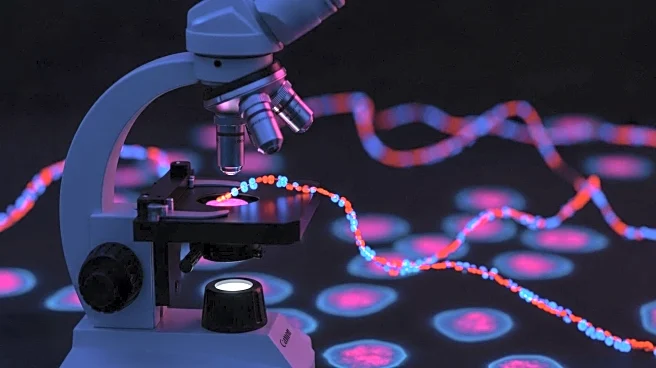What's Happening?
The global immunofluorescence assay market is anticipated to grow significantly, reaching USD 6.11 billion by 2034, up from USD 3.83 billion in 2025. This growth is driven by the increasing demand for precision medicine, personalized therapies, and improved diagnostic sensitivity and specificity. Immunofluorescence assays are crucial for identifying antigens in various tissues and cell preparations, making them essential tools in research and diagnostics. The market is expected to expand due to advancements in technology and the growing application of these assays in pharmaceutical and biotechnology industries.
Why It's Important?
The expansion of the immunofluorescence assay market is significant for the healthcare industry, particularly in the U.S., which holds the largest market share. The growth reflects a rising demand for advanced diagnostic tools and precision medicine, which are crucial for early disease detection and personalized treatment plans. This trend is likely to benefit pharmaceutical companies and research institutions by providing more accurate and efficient diagnostic solutions, potentially leading to better patient outcomes and advancements in medical research.
What's Next?
The market is expected to continue its growth trajectory, with North America leading the way due to its robust healthcare infrastructure and high demand for advanced diagnostics. Asia Pacific is projected to experience the fastest growth, driven by increased investment in medical infrastructure and research. Companies in the sector are likely to focus on developing more sophisticated assays and expanding their application in various medical fields, including autoimmune and infectious diseases.
Beyond the Headlines
The growth of the immunofluorescence assay market may lead to ethical considerations regarding the accessibility and affordability of advanced diagnostic tools. As these technologies become more prevalent, ensuring equitable access across different regions and populations will be crucial. Additionally, the increased use of these assays in personalized medicine raises questions about data privacy and the ethical use of genetic information.











